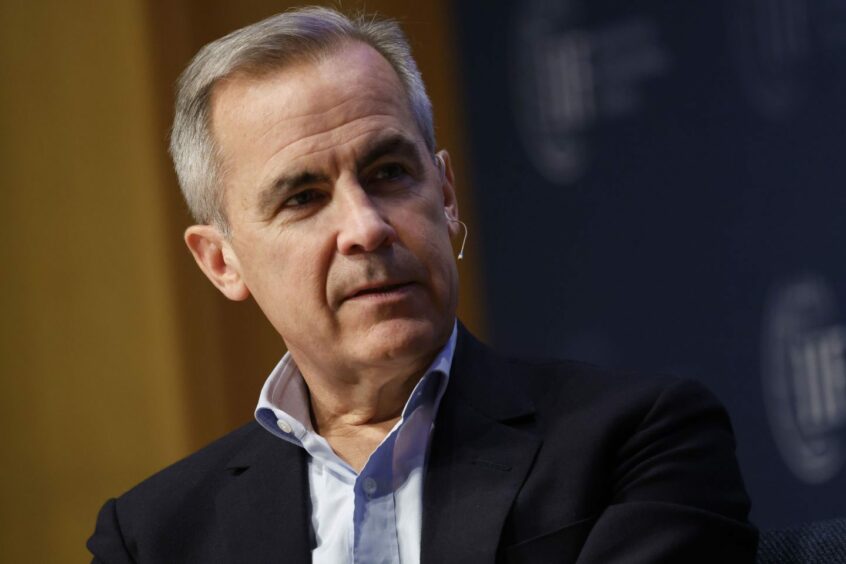
London-listed bank Standard Chartered and asset manager Schroders have unveiled plans to invest billions in the energy transition.
Standard Chartered said it has joined forces with global private equity firm Apollo Global Management to provide $3 billion of finance.
“As we navigate a world in transition, a key area where the banking sector can play a critical leadership role is in building a more resilient society,” said Standard Chartered chief executive Bill Winters in a social media post on Wednesday.
“Through this partnership, we plan to contribute up to $3 billion of clean energy and transition financing across a range of asset classes and sectors.”
Winters cited recent events including “the devastating wildfires in Los Angeles, floods and typhoons across Southeast Asia at the end of 2024”, as the impetus for the investment, describing them as “stark reminders of the urgent need” to partner on climate action.
Standard Chartered, which has invested in renewables across the Middle East and Africa and Asia, is listed on the London and Hong Kong stock exchanges and active in 52 global markets.
The bank said it will contribute credit to the Apollo Clean Transition (ACT) Capital sustainable investing platform, which will provide “clean energy and transition financing across a range of asset classes and sectors”.
“As per our announcement this week, our partnership with Apollo will help to support and accelerate financing for infrastructure, clean transition and renewable energy globally,” a spokesperson for the bank said in an emailed statement.
Apollo, which has invested more than $40bn in ‘energy transition and climate-related’ investments, plans to finance a “wide range of clean energy and climate capital needs across credit and equities” through the strategy, according to a statement.
Investment in the energy transition is only expected to rise, with the International Energy Agency estimating that $2tn would be spent on clean energy technologies and infrastructure in 2024 – double the volume invested in fossil fuels.
Many of the world’s biggest banks have retrenched from fossil fuel financing in the past five years as part of their commitment to net-zero goals, leading to calls for access to so-called ‘transition’ finance for decarbonisation projects.
The latest tie-up between a global bank and one of the world’s biggest private equity investors indicates continued appetite for banks to provide ‘transition’ finance. A private equity firm typically uses debt, or leverage, to buy companies to scale them and make a profit on sale.
In this case, Standard Chartered will provide a senior secured credit facility to ACT Capital to fund project finance and infrastructure loans. The bank has also bought an undisclosed minority stake in Apterra, a company owned by Apollo that was founded in 2023 specialising in infrastructure debt origination, which has carried out $4.8bn in financing transactions.
Apterra will be mainly responsible for originating deals for the financing partnership.
The companies said they will “accelerate financing for infrastructure, clean transition and renewable energy globally, leveraging the leading origination and distribution capabilities of both firms”.
Meanwhile, Apollo said in a statement that it “believes the demand for capital in these areas will scale materially in the coming years”.
Jim Zelter, Apollo Asset Management’s co-president, said: “The global industrial renaissance is creating unprecedented capital demands across next-gen infrastructure, sustainable power and other transition assets.”
Net zero allegiance
According to the Net Zero Banking Alliance (NZBA), Standard Chartered is one of more than 140 banks remaining with the United Nations’ net-zero group, despite the departure of six banks this past month.
“Sustainability is a strategic focus area for Standard Chartered and our long-standing commitment to this is evidenced by our membership of both the GFANZ principals group and the NZBA,” a spokesperson for Standard Chartered confirmed in a statement.
The NZBA said nine banks have left the net-zero alliance since the start of 2023, and a further two merged or went into administration. The alliance is part of former Bank of England governor Mark Carney’s Glasgow Financial Alliance for Net Zero (GFANZ).
Standard Chartered said it has “made progress in setting interim 2030 financed emissions targets for 11 of 12 high-emitting sectors”, with agriculture being the latest sector to be added this year.
“As set out in our Net Zero Roadmap, we aim to reach net zero carbon emissions in our financing activity by 2050 and in our own operations by 2025,” a spokesperson from Standard Chartered said in a statement.
“We updated this roadmap in 2023, committing to an absolute emissions target and trajectory for the oil and gas sector and today, remain focused on the delivery of our independent net zero strategy.”
Asset manager Schroders, which joined the Net Zero Asset Managers initiative in 2020, said this week that it will invest £5.2bn in sustainable investments on behalf of UK wealth manager St James’s Place.
A spokesperson confirmed that the money will be invested into the stock market. According to the firm, investment will go through Schroders’ Sustainable & Responsible Equity fund, and across the Global Sustainable Value Equity Fund and Schroder Global Sustainable Growth Fund.
“This mandate will be investing in public markets, not unlisted [energy] assets,” a spokesperson said.
The asset manager said in its 2023 climate report that it was aiming to achieve net zero by 2050 or sooner.
Its latest sustainability allocation will be made in the first quarter of 2025, according to the firm. The funds will adopt the Financial Conduct Authority’s sustainability focus label, after Schroders said in December that it would use the sustainability criteria for at least ten new funds.
The Schroder family owns about 44% of the issued share capital in Schroders, which has managed renewable energy investor Schroders Greencoat since acquiring a majority stake in Greencoat Capital from the Green Investment Bank in 2022.
With £773.7 billion of assets under management as of 30 June 2024, Schroders is a FTSE100 company, with a market capitalisation of approximately £6 billion and more than 6,000 employees.
– Additional reporting by Kitty Ma
Recommended for you


 © Bloomberg
© Bloomberg